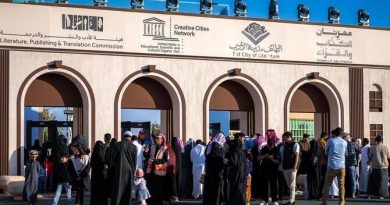Saudi Arabia Tightens Umrah Visa Rules: Pre-Booking Hotels and Transport Now Mandatory
Riyadh — Saudi Arabia has rolled out sweeping reforms to the Umrah visa process, introducing a new set of requirements that will fundamentally change how millions of pilgrims plan their journeys to the holy cities of Mecca and Medina.
The new regulations, place greater emphasis on advance bookings, digital verification, and regulated travel — moves authorities say are designed to enhance security, transparency, and pilgrim welfare.
Under the new framework, confirmed hotel reservations must be made at the time of visa application through the official Nusuk or Masar platforms.
Pilgrims staying with relatives are also required to register their host’s Saudi ID, with any changes reported immediately.
Authorities have ended the previous flexibility of tentative bookings or informal lodging arrangements.
A significant shift is the restriction on visa categories: Umrah can no longer be performed on a tourist visa. Instead, a dedicated Umrah visa is mandatory and must be obtained via Nusuk or certified travel operators.
Each applicant must also submit a fixed itinerary, uploaded with the visa request. Modifications, delays, or extensions will not be allowed, and violations may attract fines starting from Dh 750 (approx. SAR 750).
Saudi border officials have been instructed to conduct strict checks upon arrival, verifying confirmed hotel stays, authorized transport, and return flight details.
Pilgrims who fail to meet these conditions risk being turned away. To regulate movement between cities, only registered taxis and trains booked through the Nusuk platform are permitted.
Informal transport, including random taxis, will be penalized.
The reforms also affect intercity travel. The Haramain Express high-speed train—a popular choice for pilgrims traveling between Mecca and Medina—will now operate until 9:00 p.m. only.
Passengers arriving later must rely on pre-booked alternatives arranged through approved channels.
Despite the tighter restrictions, some flexibility exists. Nationals with proven travel records — such as holders of visas or residency for the UK, US, Canada, or Schengen countries — remain eligible for visa-on-arrival, though under stricter conditions.
Saudi officials argue that the reforms are essential to safeguard pilgrims against fraudulent accommodation offers, unauthorized travel providers, and overcrowding.
The Nusuk platform, launched this year, integrates visa, hotel, transport, and itinerary services in multiple languages to create what Riyadh describes as a “seamless digital experience” for international visitors.
Since reopening Umrah visas in June, Saudi Arabia has already welcomed more than 1.2 million pilgrims from 109 countries.
Officials say this underscores the effectiveness of the reforms, though travel analysts caution that smaller agencies and tech-inexperienced pilgrims may struggle to adapt to the new system.
For prospective Umrah pilgrims, the message from Riyadh is clear: plan early, use official channels, and comply with the rules. The era of last-minute arrangements and unregulated travel to Islam’s holiest sites is coming to an end.



